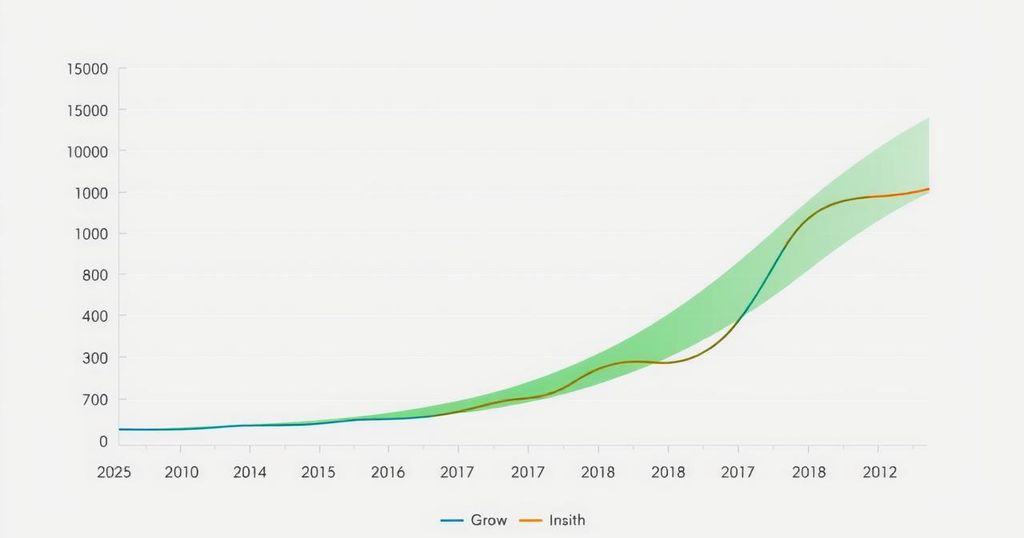OECD Projects 5.7% GDP Growth for Argentina in 2025 After Economic Reforms

The OECD projects a 5.7% GDP growth for Argentina in 2025, following a contraction in 2024. Inflation is expected to remain high at 28.4%. President Javier Milei’s economic reforms and key sector growth are driving this recovery, despite challenges such as currency stabilization. The introduction of significant investment incentives aims to further bolster economic stability.
The Organisation for Economic Co-operation and Development (OECD) anticipates that Argentina’s GDP will grow by 5.7% in 2025, showcasing a notable improvement compared to earlier forecasts. This projection signifies a positive rebound for Argentina’s economy, which has faced contraction in recent years. Nevertheless, the OECD warns of persistent annual inflation, expected to remain at 28.4% in 2025, as detailed in their Economic Outlook Interim Report from March 2025.
In contrast to the OECD’s projection, the International Monetary Fund (IMF) and the World Bank estimate a slightly lower GDP growth for Argentina at approximately 5%. Additionally, the Central Bank’s latest Market Expectations Survey reveals expert predictions of a 23.3% inflation rate alongside a 4.8% GDP growth for the same year, suggesting optimistic recovery trends.
Several key drivers are contributing to this projected growth. The economic reforms and fiscal adjustments instituted by President Javier Milei’s administration since December 2023 have played a crucial role. A significant decline in the inflation rate from 117.8% in 2024 to a targeted 23.3% in 2025, along with growth in vital sectors such as energy and agriculture, has fostered an environment for recovery. Moreover, a tax amnesty implemented in August 2024 has generated over $22 billion in new financial inflows.
Despite these positive indicators, Argentina faces challenges that must be addressed for sustainable growth. Following an estimated economic contraction of 2.8% in 2024, experts predict a nominal exchange rate of 1,175 pesos per dollar by December 2025. The government must maintain fiscal responsibility and continue implementing economic reforms to attract foreign investment and consolidate recovery efforts.
Moreover, Argentina has introduced the Incentive Regime for Large Investments (RIGI) since July 2024. This program offers significant tax and regulatory incentives for investments exceeding $200 million in sectors including energy and technology, aimed at stabilizing the investment landscape for up to 30 years. A notable recent milestone includes a successful debt repayment of $4.341 billion to international creditors, reinforcing President Milei’s commitment to restore investor confidence.
In conclusion, the OECD’s forecast of a 5.7% GDP growth for Argentina in 2025 underscores a significant recovery trajectory for the nation, bolstered by major economic reforms and inflation reduction measures. While challenges remain, including high inflation and the need for ongoing fiscal responsibility, there are substantial opportunities for growth across key sectors. The efficacy of recent government initiatives and investment incentives will be pivotal to ensuring the economy’s sustainable progress.
Original Source: eurasiabusinessnews.com








